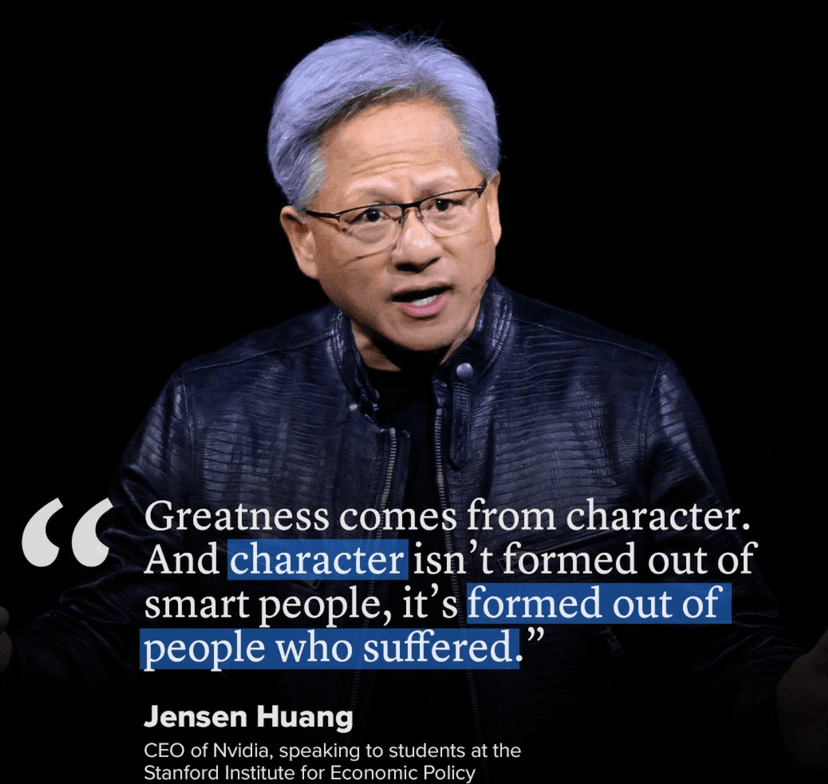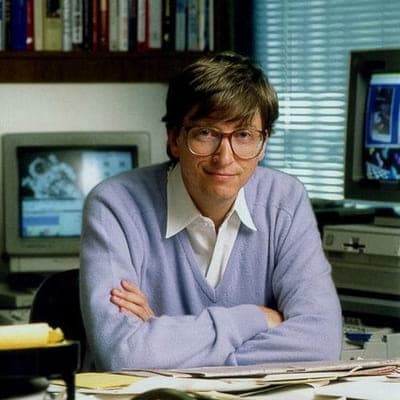
Do you think that this is toxic work culture or "the price of greatness"?
When I look back at my own journey, my biggest growth spurts weren't from my wins (though those felt great!). They came from those moments when I was sitting in my room at 2 AM, fixing shit that wouldn't work, or getting rejected from that "perfect" job opportunity.
Yesterday, I was mentoring someone who was frustrated about a project not going perfectly. Found myself saying "Good! This is where the real learning happens!" Then realized I sounded exactly like what Huang was talking about 😂
It's kind of wild, we spend so much time trying to shield ourselves (and others) from failure, but maybe that's exactly what we need? Not because suffering is good, but because learning to get back up might be the most valuable skill we never knew we needed.
Think about it - how many "overnight success" stories actually took 10 years of failing first? Probably most of them. Maybe Huang's just being real about what it actually takes, even if it sounds harsh at first.
What's your take on this? I know WLB is a big thing now and maybe this is an old fashioned take.

One interview, 1000+ job opportunities
Take a 10-min AI interview to qualify for numerous real jobs auto-matched to your profile 🔑
when its s your company, it price for greatness. When you are salaried employee it toxic work place.

Atleast nvidia minted millionaires too

This is a really important distinction. The risk-reward ratio is completely different between founders and employees. When you own significant equity and are building your vision, those 2 AM debugging sessions feel like investing in yourself.
But expecting the same sacrifice from salaried employees without proportional upside isn't leadership, it's exploitation. The real mark of greatness might be creating an environment where people can do their best work sustainably

That's short term greatness. Sure a decade may be a long for you or us genz but the real greats are who are doing ge erstuonal good and earning more from sustainable growth and employee care. Don't ask me for examples, do you own research as I have mentioned them a number of times on GV. For example Buggati

You are confusing resilience with toxicity. Resilience comes from within when you feel equal to the challenge and ready to do the grind because the rewards are worth it ( maybe it’s your company or you have enough stake in it).
Not everyone feels that involved in a problem, specially if they don’t have skin in the game. When they are forced to still grind it out beyond what they signed up for, it’s toxic.

What he’s saying is true. For example : the great pyramids of Giza couldn’t be built without the sufferings and death of the many thousands of slaves.
The Egyptian Pharoahs wouldn’t stop gloating over “their” majestic achievements. Doesn’t mean that the entire process wasn’t toxic to the workers. who built it.

Loved this take. Resilience vs Toxicity. It's all how much of your stake is involved, how much of the returns you get out of it.

Nothing is worth achieving if the cost is your health, relationships. We are so focused on achieving things within a specific timeline like MBA by 25, 1Cr NW by 28 etc etc. These numbers aren't defined on any quantitative reasoning, but just a sheer number to run behind. This ain't the goal one should pursue, life is so much more than chasing money or position.
What's the worst you'll do if you don't achieve 1cr NW by 28? You'll achieve by 32 say, is it really that bad? Who are you really competing against? Instead, why not balance it out with enough time for your personal life as well

This really resonates. The arbitrary timelines we set (1Cr by 28, etc.) often make us optimize for speed at the expense of sustainability. Life is a marathon, not a sprint. Building something meaningful while maintaining your health and relationships isn't just 'nice to have' - it's what makes the achievement worthwhile in the first place. A few years' delay in hitting those milestones is nothing compared to burning out or losing connections with people who matter

Toxic culture kills people. So the question is how many others are you willing to sacrifice to get profit for yourself? Slavery is outlawed for a reason. No human gets to make that choice to manipulate someone else to death.

This powerfully frames it as an ethical issue, not just a business one. Creating conditions that harm people's mental and physical health for profit isn't just poor leadership, it's morally wrong.
Modern toxic workplaces might be more subtle, but the fundamental issue remains: no business success is worth sacrificing human wellbeing

I think there's a difference between toxic culture in an organisation and an organisation where employees are working hard, beyond normal work hours routinely, for the growth of the company, their own learning curve growth and their long term success. It may involve sacrificing on work life balance as well. But should not mean being disrespected, demeaned, one's hardwork and recognition being taken by others/superiors, and/or not being compensated adequately in monetary terms (ie industry std and above, tied to long term success of the organisation) in the mid-term and long-term. I feel 'toxic' work culture is a lot more than just poor work life balance!

Your nuanced take captures an important distinction. Working hard and facing challenges isn't inherently toxic - it's the context and respect that matters. A culture can push for excellence while still valuing people's dignity, contributions, and long-term wellbeing. The best organizations find ways to align ambitious goals with sustainable practices and fair compensation. That's real leadership

Toxicity is not the amount of hard work or the amount of work an employer asks you to do, toxicity is the disrespect employer offers to its employees.

This really cuts to the heart of it. Hard work and challenges can be energizing when there's mutual respect and recognition. But when that foundation of respect is missing, even reasonable workloads become toxic. It's not about the hours or the difficulty - it's about how people are treated as human beings within the organization

Exactly my point

I think bezos or someone said it: "fail faster"



